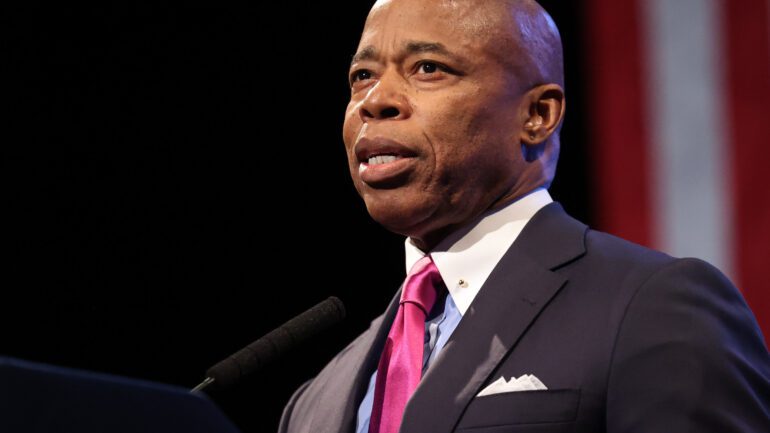TL;DR:
- NYC Mayor Eric Adams utilizes AI for multilingual robocalls.
- Thousands of calls in various languages, including Spanish, Yiddish, Mandarin, Cantonese, and Haitian Creole.
- Ethical concerns were raised about portraying language proficiency.
- Part of NYC’s broader Artificial Intelligence Action Plan.
- Mayor aims to connect with non-English-speaking residents.
- Calls are generated using Microsoft Azure AI.
- Deepfake concerns emerge as AI voice closely resembles the mayor.
Main AI News:
In a remarkable display of technological prowess, New York City Mayor Eric Adams has harnessed the power of artificial intelligence (AI) to communicate with residents in languages he does not personally speak. This innovative approach has seen the mayor reach out to his constituents through a series of multilingual robocalls, effectively transcending language barriers.
Mayor Adams, leveraging AI tools, has delivered thousands of robocalls in Spanish, over 250 in Yiddish, more than 160 in Mandarin, 89 in Cantonese, and 23 in Haitian Creole, as reported by The City. While this novel initiative seeks to engage a diverse population, questions have arisen regarding the ethical implications of portraying himself as multilingual when, in fact, he is not.
Albert Fox Cahn, the Executive Director of the Surveillance Technology Oversight Project (STOP), voiced his concerns, stating, “This is deeply unethical, especially on the taxpayer’s dime. Using AI to convince New Yorkers that he speaks languages that he doesn’t is deeply Orwellian.”
Mayor Adams addressed the topic of multilingual robocalls during a recent press conference, coinciding with the city’s unveiling of the Artificial Intelligence Action Plan. “We see this as something that can be generally used across the entire city where we’re offering any type of service… we will eventually expand so that all services will be serviced through a bot,” remarked New York City’s Chief Technology Officer, Matthew Fraser, during the briefing. At present, the city has introduced a new tool called MyCityChatbot, powered by Microsoft Azure AI, to answer inquiries related to starting a new business.
Mayor Adams expressed enthusiasm for the robocalls his office had already disseminated in various languages, recounting, “I was excited when I had my voice go over the phone to a person who speaks Mandarin, and they were able to hear their mayor speak to them in their language.” However, these calls do not explicitly disclose that an AI-generated voice is conversing with recipients.
When confronted by a reporter about the potential misrepresentation of his language abilities, Mayor Adams defended his actions, emphasizing the need to connect with residents who speak languages other than English. He stated, “Is this ethically right or wrong? I got one thing, I got to run a city, and I have to be able to speak to people in languages they understand… to all, all I can say is ni hao,” concluding the press conference with a lighthearted note.
For those curious to hear Mayor Adams’ robocall in Spanish, The City has made it available on YouTube. Remarkably, the AI-generated voice bears a striking resemblance to the mayor himself. Cahn commented, “The Mayor is making deep fakes of himself. Yes, we need announcements in all of New Yorkers’ native languages, but the deep fakes are just a creepy vanity project.” This intriguing intersection of AI and political communication continues to spark debate within the city’s vibrant landscape.
Conclusion:
Mayor Eric Adams’ use of AI-powered multilingual robocalls signifies a noteworthy step in leveraging technology to engage diverse communities. However, ethical considerations and concerns over deepfake technology highlight the need for transparency and responsible AI use in the political arena. This development underscores the growing importance of AI integration in communication and public engagement strategies, with potential implications for the broader market in AI-powered civic solutions and services.

